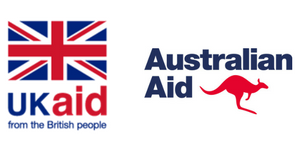Entrepreneurs, and owners of informal small and medium-sized enterprises (SMEs) – many of whom are women – represent a crucial, and sizeable, component of many economies. This is particularly the case in Nigeria, where SMEs are believed to constitute more than 90 per cent of all businesses in the country.
Although these enterprises play an important role in society and the economy, their potential is often constrained by a lack of meaningful identification (ID). In particular, business owners find it difficult to highlight the legitimacy of themselves and their firms, and to demonstrate their trustworthiness and credibility. Due to these issues, they are often unable to access business support services, source new customers and suppliers, and professionalise and grow their businesses. Our new report considers a potential solution to these challenges.
Building on previous research on ID in Nigeria, and other work exploring SME ID opportunities in Ghana and Sri Lanka, we explored the potential of an ‘economic ID’ for SMEs in Lagos. An ‘economic ID’ enables individuals or businesses to use their commercial or financial strength to demonstrate their credibility, often in the absence of a more formal ID.
The ‘economic ID’ concept that we explored with SMEs in Lagos would leverage the central role of mobile phones in the Nigerian informal economy. Here, mobile phones are used to negotiate with suppliers and distributors, to market and sell products (including on digital marketplaces, and via social media); and to make and receive payments via banking apps, or through the growing use of mobile money products and services.
In this context, through combining mobile phone data – including mobile credit top-ups, and usage information – with other data sources, such as data from financial service providers, utility companies, and others; there is the potential to create a digital profile of an SME. This profile would function as an ‘economic ID’ – highlighting to customers and suppliers the credibility, trustworthiness, reliability and strength of an enterprise.
The research that forms the basis of the report highlighted the potential of this solution. It also provides a strong foundation for developing a functioning proof-of-concept. This includes providing an initial steer with regard to essential aspects such as consent, user privacy, data sources that could be used to build the above digital profile, and the range of products and services that are of particular interest to those working in the informal economy.
The report sets out an initial minimum viable product (MVP) for a mobile operator to take forward, and a broader roadmap toward scaling-up an SME economic ID in Nigeria. The research highlighted that the timing for developing such an economic ID is strong. Beyond the real and present challenges, and constrained potential, experienced by informal enterprises and entrepreneurs, mobile operators are also in the process of securing mobile money licenses – following recent regulatory changes.
These new mobile money products and services will provide an important data source for any economic ID. Related to this, as mobile operator business models and ways of working are being honed ahead of launching mobile money offerings, there is a unique opportunity to develop, pilot, and scale an economic ID aligned to mobile money rollout. In turn, through enabling the potential of thousands of entrepreneurs, this economic ID could catalyse the growth of SMEs and prove transformational for the wider Nigerian economy.
The Commonwealth Digital Identity Initiative is funded by the UK Department for International Development (DFID) and the Australian Government (DFAT), and is supported by the GSMA, its members, World Bank and Caribou Digital



